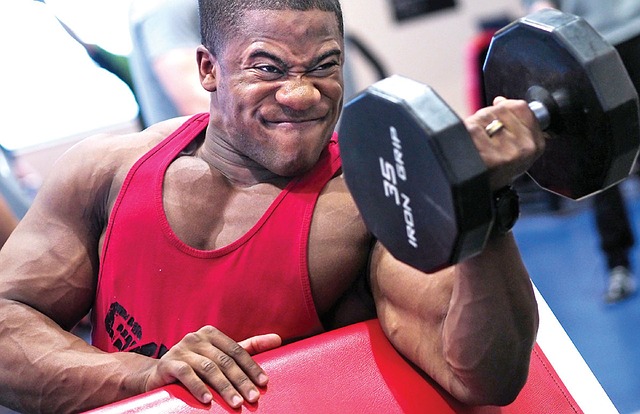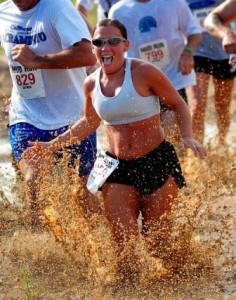- Calls to this hotline are currently being directed to Within Health, Fay or Eating Disorder Solutions
- Representatives are standing by 24/7 to help answer your questions
- All calls are confidential and HIPAA compliant
- There is no obligation or cost to call
- Eating Disorder Hope does not receive any commissions or fees dependent upon which provider you select
- Additional treatment providers are located on our directory or samhsa.gov
Athletes and Binge Eating Disorder

Contributor: Crystal Karges, MS, RDN, IBCLC, Director of Content and Social Media at Eating Disorder Hope
Athletes who compete at the collegiate, professional, and Olympic levels are able to attain success through years of dedication and commitment to their training. Athleticism may come naturally to some, but athletes who are able to compete at competitive levels are able to do so as a result of consistent training.
Athletic Training – What is Involved?
Depending on the level an athlete may be training, workouts and regiments may be varied. Athletic training for any sport usually includes a combination of workouts, nutrition, and rehabilitation. Many athletes are required to follow rigid guidelines when it comes to their training, how they workout, what they eat, and for some sports, how much they weigh, percentage body fat, etc.
With a hyper-focus on aspects that include body, nutrition, training, and performance, it is easy to understand how many athletes may become susceptible to developing an eating disorder. Many athletes are positively reinforced with the idea that certain aspects of their training are beneficial for their success as an athlete, such as cutting out certain foods from their diet, training or exercising for given lengths of time, or even achieving a certain body standard. This can potentially create a chaotic and damaging relationship when it comes to food and body.
Athletes Struggle With Binge Eating Disorder
Athletes are susceptible to developing eating disorders, such as binge eating, bulimia, and anorexia nervosa. While it is more common to hear of anorexia or bulimia occurring in athletes, there is not as much discussion about the impact of binge eating disorder in athletes. This may be partially due to the stereotypes that have been created about eating disorders.
M any individuals believe that binge eating disorder is something that occurs in individuals who are overweight and/or obese and therefore do not attribute this to competitive athletes; however, this concept is completely false.
any individuals believe that binge eating disorder is something that occurs in individuals who are overweight and/or obese and therefore do not attribute this to competitive athletes; however, this concept is completely false.
Eating disorders, including binge eating disorder, can occur in individuals regardless of their size, weight or shapes, and athletes who come to develop a chaotic relationship with food may be particularly susceptible.
Eating Disorders Identified Among Elite Athletes
Elite athletes, or athletes who compete in body-focused sports, such as dancing, gymnastics, wrestling, long-distance running, etc., may be more inclined to develop eating disorders. Many research studies in the area of athletes and eating disorders have confirmed the alarming trend observed among athletes.
A study published in the Clinical Journal of Sports Medicine found that the prevalence of eating disorders in elite athletes is higher than in the general population [1].
This study, which analyzed and compared a group of elite female and male athletes to the general population, evaluated for the presence of eating disorders using self-reported questionnaires and clinical interviews, finding that almost 14% of the elite athletes screen had subclinical or clinical eating disorders [1].
 Data also found that eating disorders were higher among female athletes than their male counterparts and more common among those competing in leanness-dependent and weight-dependent sports than in other sports [1].
Data also found that eating disorders were higher among female athletes than their male counterparts and more common among those competing in leanness-dependent and weight-dependent sports than in other sports [1].
Binge eating disorder may be particularly difficult to identify among athletes, as the behaviors associated with this eating disorder may not be as commonly recognized. Many individuals who are struggling with binge eating disorder often engage in abnormal eating behaviors in secret and isolation due to the shame and guilt that is often experienced around this disease.
Athletes who are facing surmounting pressure to perform to a certain degree for their sport and constantly be under rigid guidelines when it comes to food and their body may find binging as a form of release or escape.
Whatever the reasons for the development of binge eating disorder, this disease is in fact a serious psychiatric illness that should not be taken lightly, nor should it be ignored. Coaches, trainers, and parents may help with early identification by understanding the signs and symptoms that are part of binge eating disorder.
If you are an athlete that has struggled with binge eating disorder, it is important to seek out professional help as early as possible to prevent debilitating consequences. Talk with someone you trust to begin the recovery process today.
Community Discussion – Share Your Thoughts Here!
What factors do you think make athletes susceptible to eating disorders, such as binge eating?
References:
[1]: Sundgot-Borgen J, et al. Prevalence of eating disorders in elite athletes is higher than in the general population. Clin J Sport Med. 2004 Jan; 14(1):25-32
About the Author: Crystal is a Masters-level Registered Dietitian Nutritionist (RDN) with a specialty focus in eating disorders, maternal/child health and wellness, and intuitive eating.
Combining clinical experience with a love of social media and writing, Crystal serves as the Special Projects Coordinator for Eating Disorder Hope/Addiction Hope, where her passion to help others find recovery and healing is integrated into each part of her work.
As a Certified Intuitive Eating Counselor, Crystal has dedicated her career to helping others establish a healthy relationship with food and body through her work with EDH/AH and nutrition private practice.
The opinions and views of our guest contributors are shared to provide a broad perspective of eating disorders. These are not necessarily the views of Eating Disorder Hope, but an effort to offer discussion of various issues by different concerned individuals.
We at Eating Disorder Hope understand that eating disorders result from a combination of environmental and genetic factors. If you or a loved one are suffering from an eating disorder, please know that there is hope for you, and seek immediate professional help.
Last Updated & Reviewed By: Jacquelyn Ekern, MS, LPC on September 27, 2016
Published on EatingDisorderHope.com

The EatingDisorderHope.com editorial team comprises experienced writers, editors, and medical reviewers specializing in eating disorders, treatment, and mental and behavioral health.

